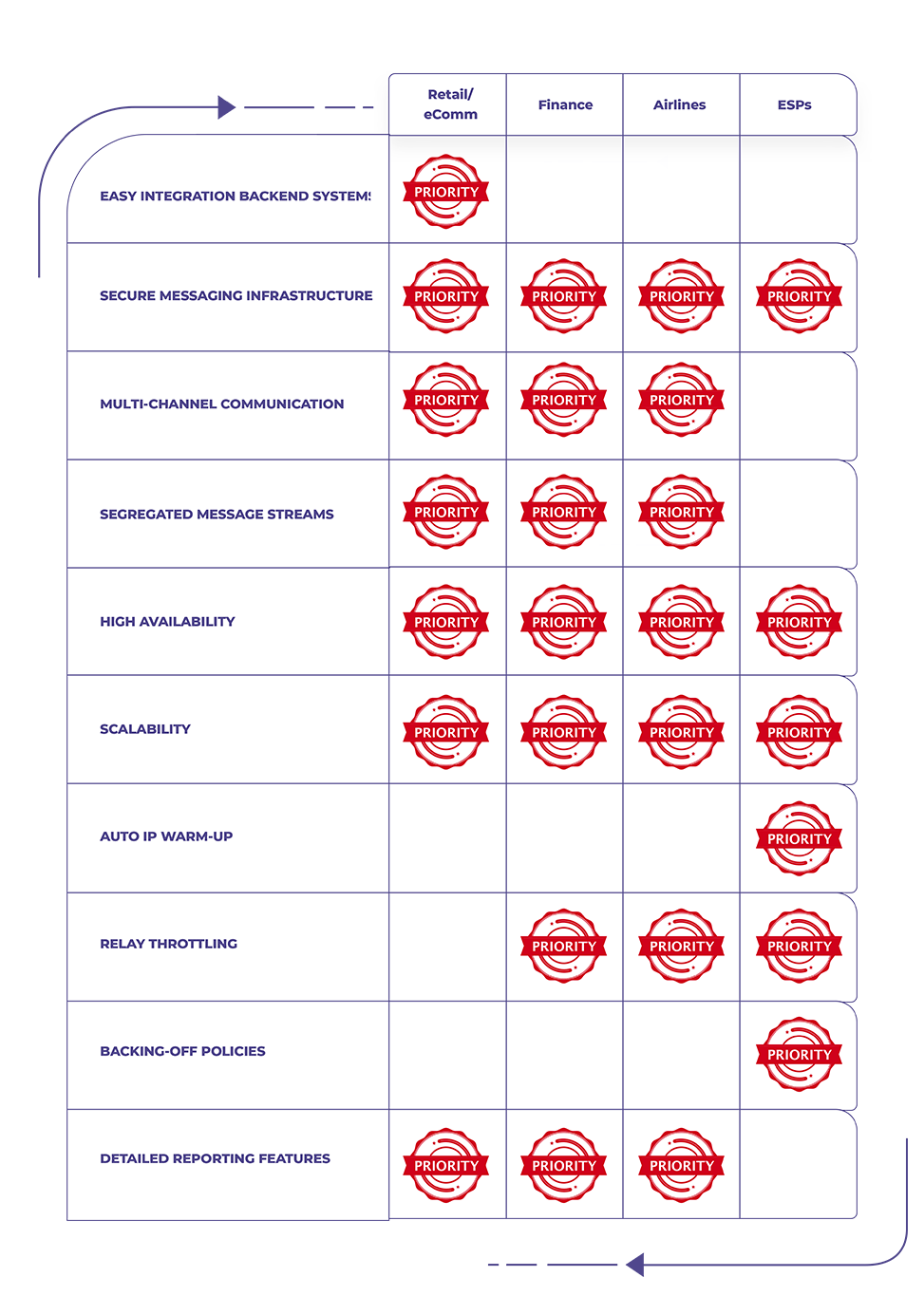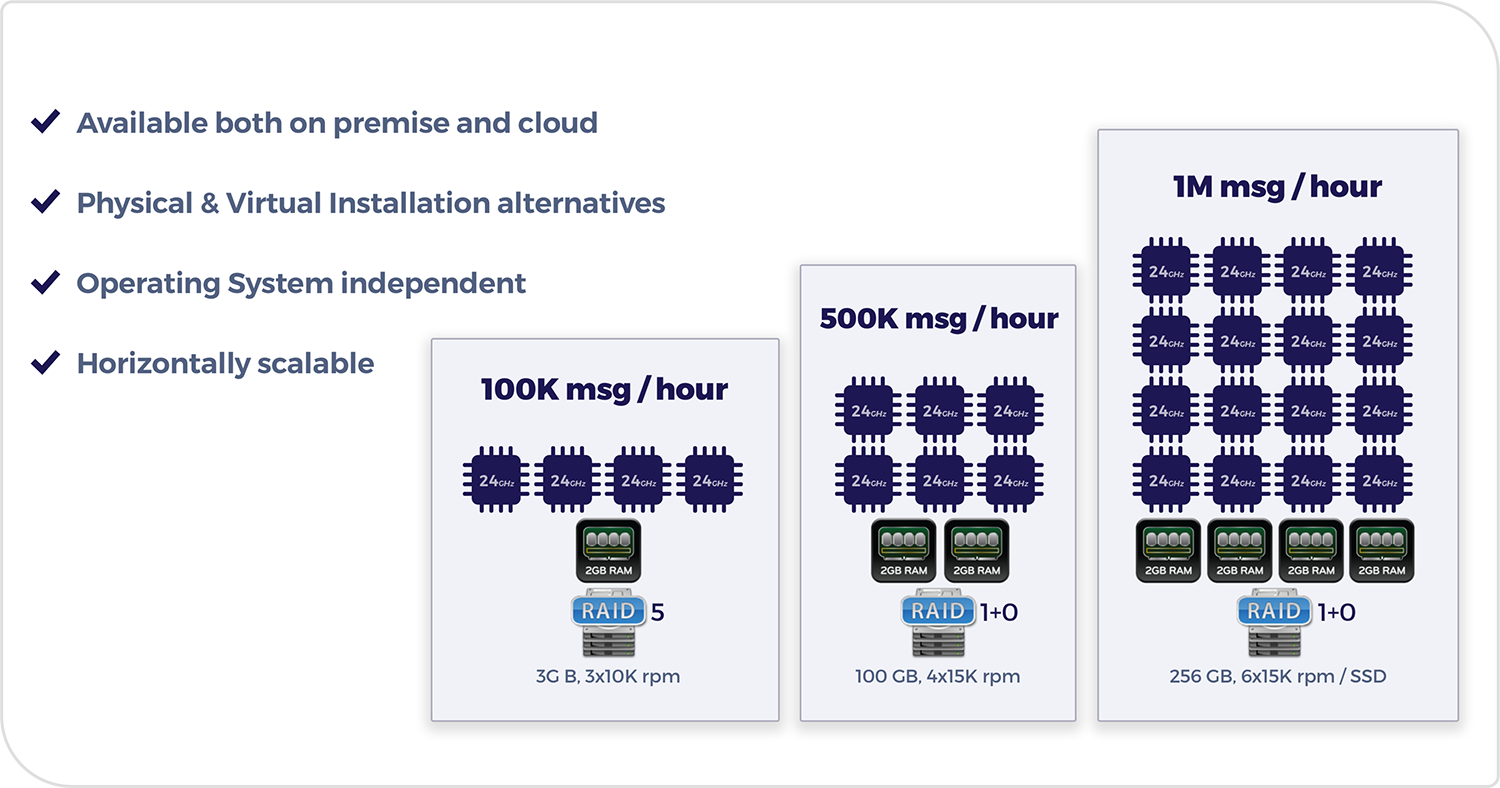Hardware Specifications
portMTA supports both physical and virtual infrastructures and is also operating system independent. It can be installed on Windows or Linux Servers. The hardware specifications change according to send/rate requirements of yours.
Each portMTA instance is stackable and there is no hard limit on the number of stacked layers. The recommended hardware specifications are depicted below for tested send/rates.
Every Industry has their own priorities
portMTA features the following key functionalities that are critical for different business verticals and their requirements
Easy Integration with complex backend systems
Simple API calls / Common Queue Push & Pull Methods
Secure Messaging Infrastructure
Each message is encrypted in the queues, on the disks and even in the cache memory
Multi-channel Communication
portMTA not only supports e-mail but also SMS, web and mobile push messages
Segregated Message Streams
Message streams separated according to type, source and even its content and can be relayed from dedicated VMTAs and IP addresses (Marketing Messages, Transactional Messages with Personal Identifiable Information
High Availability
portMTAs work with pairs in active/active mode behind a loadbalancer
Scalability
No Hard Limits, send rates from 100k msg/hour up to 50mn msg/hour
Auto IP Warm-Up
Automatic warm up algorithms for new IP addresses per VMTA instance
Relay Throttling
Ability to set the relay speed per send queue
Backing-off Policies
Dynamic policies adjusting relay speed & volume according to ESP feedbacks
Detailed Reporting Features
Open/Click reports, Reporting by OS/Device both for bulk and transactional messages


